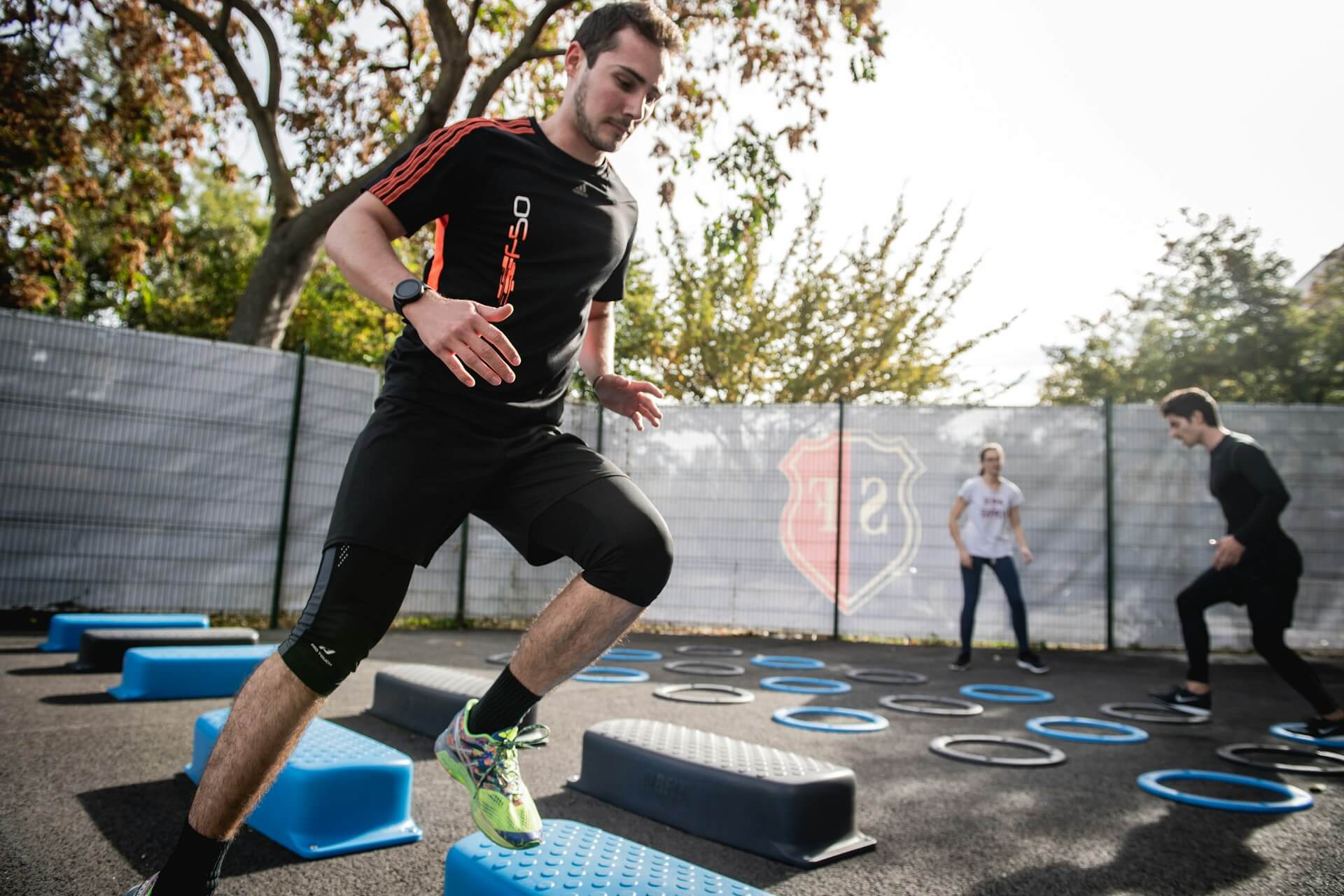What is the Difference Between Weight Loss and Fat Loss?
Apr 03, 2024

As an Amazon Associate, Modded gets commissions for purchases made through links in this post.
Between movements that strive for health, body positivity, bulking up and slimming down, there are probably a million standards in your periphery. Whether you’re a vegan, a CrossFit fiend or a regular guy looking to get a bit more into the world of fitness and health, the difference between weight loss and fat loss might seem a bit confusing at first. The image many people have in their heads of weight loss is that once you start dropping pounds, you’ll begin to get shredded and lean, and while this certainly can happen, it isn’t the only thing that can happen.
The difference between weight loss and fat loss isn’t always so cleanly divided — often, the two can go hand in hand, or they can be closely related. While weight loss and fat loss can both impact your body, you may find over time that the number on the scale isn’t always the best metric for measuring your body’s health.
In addition to how you feel in your own body, there are other ways to get a more well-rounded picture of your health. Not only that, but you can learn to engage in practices and habits that are much more focused on real results for your body. If you’re interested in the nitty-gritty, here’s a bit more information on the difference between fat loss and regular weight loss.
Which Should You Strive For?
Which kind of weight loss you strive for is dependent on you and your preferences for your body and lifestyle. However, even if you find that the number on the scale makes you feel comfortable, real results most often come from fat loss, not weight loss.
While weight loss impacts the number on the scale and the actual heaviness of your body, you may have heard the idea that muscle weighs more than fat, and that’s true. This means that when you lose fat, you likely won’t notice the number on the scale changing as much as the appearance of your body. On the flip side, the number on the scale often reflects heavier bodily elements like muscle. While some people might want to intentionally slim down or cut muscle, most people who want to tone up or lose weight in the traditional sense would do much better focusing on fat loss.
Can You Lose Fat Without Losing Weight?
Yes, you absolutely can lose fat without losing weight. However, it pays to be realistic. That number on the scale that refuses to budge isn’t necessarily indicative of major muscle gains unless you’ve put in some serious gym hours and were relatively sedentary previously.
Consider this: One pound equals 3,500 calories. That’s more than most guys eat in a day — the average is around 2,000 to 2,500. Compare that to a 150-pound guy lifting weights for 45 minutes, burning approximately 158 calories. If said fellow packs on five additional pounds by rewarding each gym session with a cheeseburger, it’s unrealistic to believe the change in their overall body composition means the gain was pure muscle.

Weight Loss Without Fat Loss
If you lose weight without a noticeable shift in your appearance, you may be losing muscle or even water weight. You could be losing weight by cutting your diet too much and not exercising. That could point to unhealthy weight loss.
Furthermore, unexpected weight loss that occurs without significant changes to your diet and exercise program can spell health trouble. Unplanned weight loss is a symptom of various diseases, including:
- Cancer
- Hyperthyroidism
- Abdominal infection
- Gastroenteritis
- Dementia
- Celiac disease
- HIV or AIDS
When Health Means Weight Gain
For many people, treating your body right might actually lead to gaining weight when you look down at the scale. Specifically if you’re working out and gaining muscle. Plus, since these things tend to go hand in hand. You may find yourself simultaneously losing fat and gaining muscle, resulting in a slight weight gain on the scale. It can occur when you feel better about yourself and see drastic results.
Gaining and Maintaining Muscle
Fitness professionals often say that muscles are made in the kitchen when referring to the balance of diet and exercise. But you also need to work out to gain muscle and maintain it over time. It’s much easier to lose muscle than fat, making it much more important to stay on top of your game.
How often should you work out? The WHO recommends at least 150 hours per week of activity that elevates your heart rate, along with two to three days of strength training. You should hit the weight room a minimum of 30 minutes twice a week to maintain your gains.
Measuring Fat Loss
This all might beg the question — how exactly do you tell when you’re losing fat, not just weight? While jumping on the scale is an easy and quick way to assess things. But as we’ve discussed, that isn’t an accurate measurement of health. If you want to measure fat loss, try it by taking measurements of your body. Muscle is much more compact, and most people have a goal of slimming down in some way. Measure all of the priority areas for you, and keep track of the changes over time.

Making Healthy Choices for You
Really, losing fat and gaining muscle is all about making the healthiest choices for your body. When you work out, eat right and fuel your body with lean proteins, fruits and vegetables, you can accomplish so much more.
Weight Loss vs. Fat Loss
While weight loss might seem like an overall blanket term, there are so many ways to lose weight. Primarily, losing fat and gaining muscle helps people achieve their health goals, no matter what the scale says.
Originally posted 5/12/21 – Updated 4/3/24






